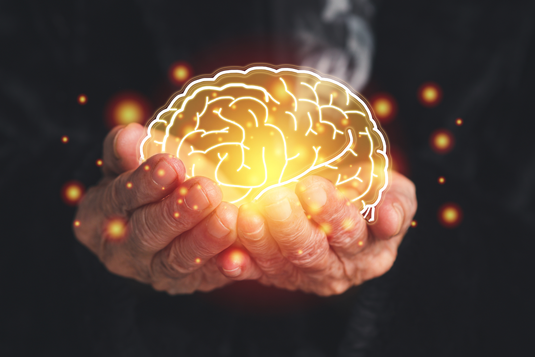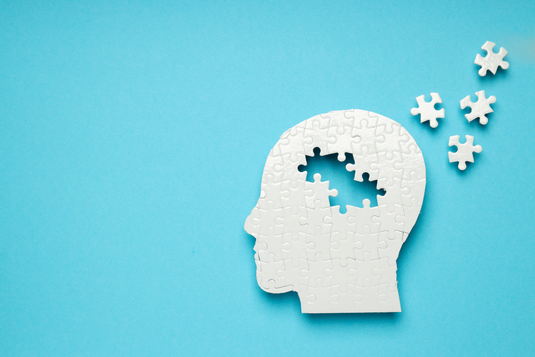The adrenal glands, which are key components of the endocrine system, are small structures located just above the kidneys. They produce hormones vital to health, such as adrenaline and cortisol, as well as other hormones that in turn regulate the release of the sex hormones estrogen and testosterone. Medical research and science are only in the beginning stages of discovering what role the adrenal glands really play in our body and how they affect our health.
The primary activator for the adrenal glands is stress, which causes them to produce extra amounts of hormones such as adrenaline. This wonderful survival mechanism built into the body is indispensable in times of crisis, as the extra amount of hormones helps us overcome the danger.
However, if the stress continues for a long time—for example, if you experience bankruptcy, divorce, separation, betrayal, the death of a loved one, or some other cause of severe emotional upheaval—the adrenal glands become exhausted from the prolonged "overload." Experiencing significant stress, even for a relatively short period of time, can also lead to an overload of the adrenal glands - a typical example in this regard is childbirth, when the body needs a huge influx of adrenaline.
In fact, what the medical community doesn't know is that postpartum fatigue and depression are often the result of the incredible exhaustion of the adrenal glands following childbirth. They stop producing the necessary hormones at the right time and the woman feels lost, lifeless and unhappy! When overworked, the adrenal glands experience something of a nervous breakdown and behave abnormally.
Some alternative medicine doctors believe that when the adrenal glands partially "burn out", they simply stop producing the full amount of necessary hormones. This is an oversimplification of their complex function of constantly reacting to every emotion and change in the environment. What's actually happening is that instead of working steadily and creating just the right amount of hormones for each new situation, depleted adrenal glands can produce too little or too much hormone—something similar to the extreme mood swings of people with bipolar disorder .
For example, temporary depression can occur when uncontrolled adrenal glands overreact to a situation and flood you with too much adrenaline. Excess adrenaline can in turn burn out neurotransmitter chemicals in your brain. One of these neurotransmitters, among many, is dopamine. All neurotransmitter chemicals are vital to feeling stable and happy, so a lack of them can make you feel depressed. It is this erratic behavior, causing extreme ebbs and flows of hormones, that characterizes true adrenal fatigue.
While alternative doctors don't understand all the nuances of adrenal fatigue, they are way ahead of some traditional medicine doctors who don't even acknowledge that this disease exists. The truth is that adrenal fatigue has been with us since the dawn of time. What has changed is how widespread it has become – thanks to our fast-paced and stressful lives, as well as the viral disease boom that began in the 20th century, plus the widespread toxic exposure to heavy metals. Because of the fast pace of our lives, over 95% of us will experience adrenal fatigue many times in our lifetime.
Symptoms of Adrenal Fatigue
Adrenal fatigue is accompanied by one or more of the following symptoms: tiredness, lack of energy, trouble concentrating, tendency to get confused and forgetful, difficulty doing tasks that you normally do easily, hoarse voice, indigestion, constipation, depression , insomnia, fatigue after waking up, desire to take a nap during the day. Keep in mind that similar symptoms can also accompany a low-grade viral infection such as EBV - ie. both adrenal fatigue and viral symptoms can be combined.
Adrenaline plays a major role while you sleep (because that's when the adrenal glands are stimulated to release this hormone), so in severe cases of adrenal fatigue, some people don't get enough sleep, which affects the mind, soul, and spirit. In very extreme cases, some people are so weak that they cannot get out of bed for more than a few hours a day.
Adrenal fatigue often affects other glands and organs as well. For example, the pancreas can be stressed from working overtime to compensate for the adrenal glands' underperformance. Your heart may have to work harder as it tries to regulate abnormal levels of adrenaline, cortisol and blood sugar. If excess mixtures of adrenaline and cortisol suddenly rush through your body and deplete the liver's stores of glucose, glycogen and iron, the liver will have to work extra hard to make new ones. And your central nervous system and brain can fail from the sudden flood of adrenaline-cortisol mixtures and the lack of glucose.
An insufficient amount of cortisol also creates disorder because cortisol plays a major role in converting the stored thyroid hormone T4 into the hormone T3, which the body can now use to "recharge" the cells. When the adrenal glands function at lower speeds, a lack of thyroid hormones occurs at the cellular level. In this case - even with a healthy thyroid gland that is functioning normally - a person may show symptoms of hypothyroidism such as weight gain, depression, hair loss, brittle nails, roughening or thinning of the skin, feeling cold, fluctuating blood levels sugar and a number of other problems that are actually the result of insufficiently efficient adrenal glands combined with a low-grade viral infection and a stagnant, sluggish liver.
Some of these symptoms can also occur with perfectly healthy adrenal glands, but a malfunctioning thyroid gland. You may also have neurological fatigue, which is caused by central nervous system problems as a result of neurotoxins produced by viruses such as Epstein-Barr and herpes zoster. Because energy loss can be caused by a number of reasons, it's difficult to know if you're suffering from adrenal fatigue based on just a cluster of symptoms. Fortunately, there are some additional signs that can help you navigate.
Additional signs of adrenal fatigue
If you have several of the symptoms described above and your condition matches two or more of the scenarios presented below, then it is very likely that you are suffering from adrenal fatigue.
You're "fluttering" energetically in the morning and/or later in the day. Even if you had a normal amount of sleep the night before, you may feel the need to lie down and close your eyes before lunch if you lack sufficient hormones released by your adrenal glands.
You are tired all day at work, but when you get home in the evening, you feel more energetic. This happens when your exhausted adrenal glands hold onto their limited supply of hormones during a stressful day in case an emergency arises, then release the reserves when you return home to a calm environment where the likelihood of facing a crisis is much smaller.
In the evening, you are extremely exhausted, but you have difficulty falling asleep. Falling asleep itself, and especially falling into REM sleep, when a person dreams intensely, requires adrenal hormones. If you are deficient in these, you may suffer from insomnia, unsatisfactory light sleep and/or lack of dreams.
You feel restless even after a good night's sleep. Again, if you lack enough adrenal hormones to fuel REM sleep and dreaming, it makes you feel sleep deprived. On top of that, low hormone levels actually sap your energy and make you feel tired, no matter how long you've slept.
You constantly sweat under your arms even with the lightest exertion. It is due to the fact that the endocrine system works at a faster speed in an attempt to compensate for the lack of sufficient adrenaline.
You are constantly thirsty and cannot quench your thirst; your mouth becomes dry and you often crave salty foods. This is caused by a significant number of electrolytes in your blood and nervous system being destroyed by the sudden flood of adrenaline and cortisol. Water, soda, coffee, alcohol and most other drinks will not solve this problem. You should replenish electrolytes by drinking something that has the right balance of sodium, potassium and glucose - for example, coconut water, freshly squeezed apple juice, freshly squeezed celery juice, or a combination of celery and apple or celery and cucumber.
Blurred vision or difficulty focusing images. This is due to the influx of excess cortisol, which dehydrates each area and damages one or more of the sensitive areas around the eyes that require constant hydration. Other symptoms include dark circles around the eyes and/or sunken eyeballs.
Constant craving for stimulants. If you constantly need stimulants to keep you going—like cigarettes, coffee, caffeinated sodas, sweet things (like cookies and donuts), or even prescription drugs (like amphetamines)—you may be instinctively looking for a replacement for your missing adrenal glands. hormones. While stimulants will give you a quick burst of energy, you'll soon "crash" once their effects wear off. Also, if you regularly deplete your adrenal glands by forcing them to produce more hormones, you enter into a cycle of energy peaks and troughs, and over time you further worsen their already dysfunctional function.
How to Avoid Adrenal Fatigue
It is not easy to avoid everyday stress. We all have responsibilities and obligations, some of which cannot be avoided in any way. Not all of us have a choice in the way we live because of financial needs, caring for other people, or other responsibilities. The little things go a long way when helping to maintain and even restore your adrenal glands. If it's impossible for you to make the big changes, like getting more sleep, relaxing your schedule, taking more control over your workload, or focusing on the best eating options, know that every bit of support you give your adrenals glands, means a lot for their support. So let's look at small steps to help you take more control of your health.
One step you can take is to avoid caffeine, which is meant to give you an adrenaline "rush". While caffeine may make you feel good temporarily, in the long run it risks burning out your adrenal glands. Relying on coffee drinks, matcha tea, chocolate, and cocoa, even when they seem healing, is a sure path to not allowing your adrenals to heal.
Another stress on the adrenal glands is strong emotions. This does not mean that you should avoid all strong emotions. For example, if you feel extremely happy, the adrenal glands will generate a hormone that is good for your body and will not overload the glands. However, if you are experiencing fear, the adrenal glands will produce a form of adrenaline that over time can wear out both the glands and other vital parts of your body.
You may ask yourself, "How is it possible that some emotions are better for the body than others? Don't my adrenal glands release the same adrenaline in response to every emotion?" That's exactly what the doctors think, but they're wrong. The truth is that the adrenal glands secrete 56 different types of hormones depending on different emotions and situations. Specifically, they produce 36 types of adrenaline for everyday situations (which you need when, for example, you are afraid, moving fast, going to the toilet, bathing/swimming and dreaming) and 20 types for more special occasions (birth, protection in case of physical assault, grief due to the death of a loved one).
In general, if something makes you feel emotionally ill, it is most likely harming your body and making you vulnerable to disease, and if it continues for a long time, it will deplete your adrenal glands. Therefore, it is best to let negative feelings such as fear, anxiety, anger, hatred, guilt, and shame simply flow through you without suppressing and engaging with them.








